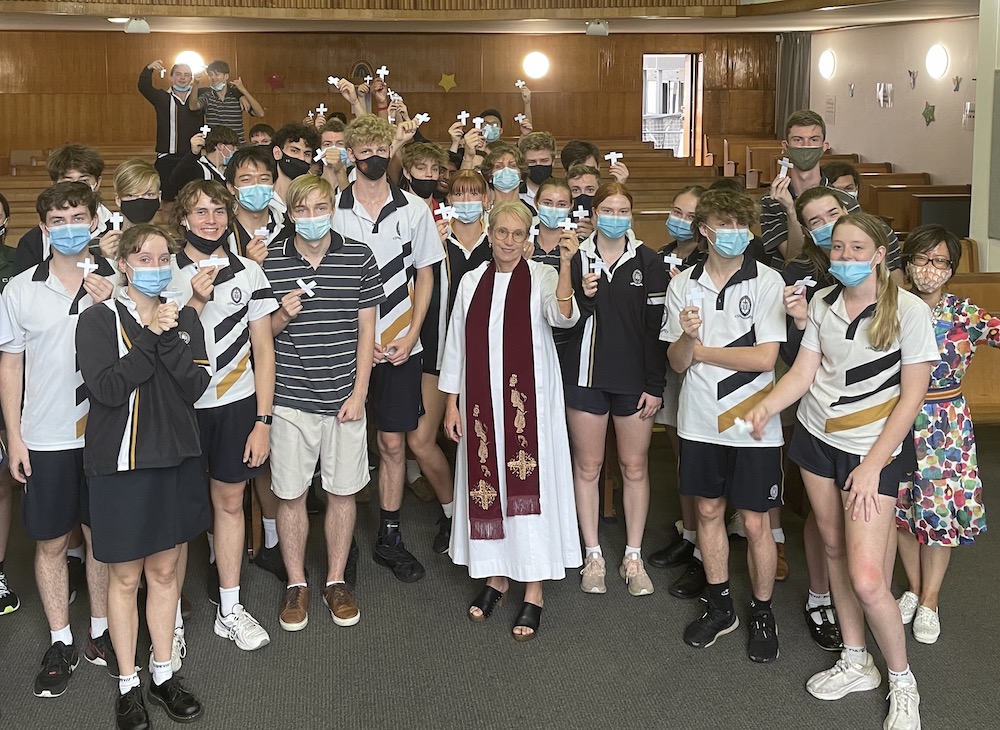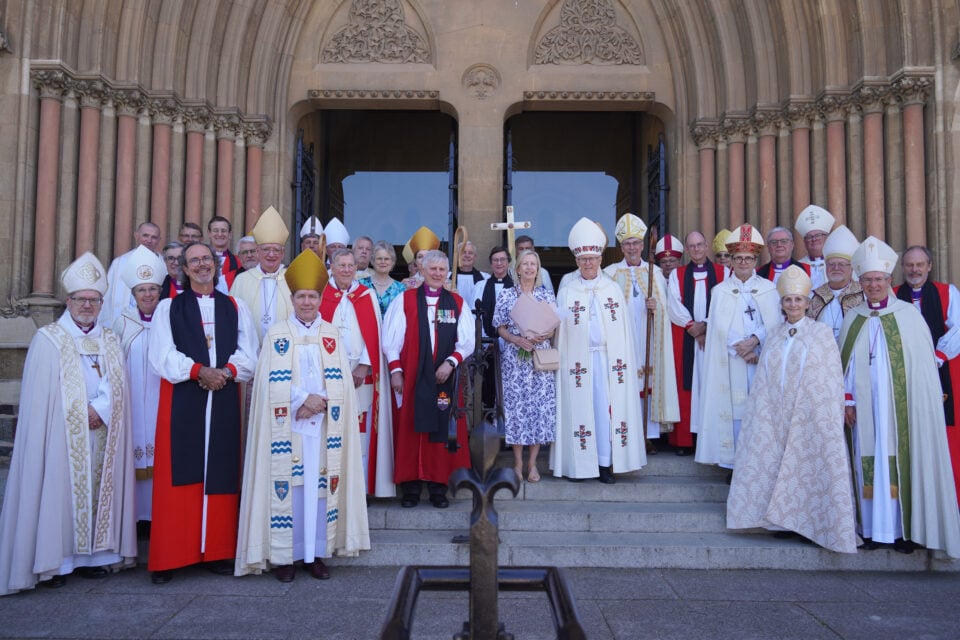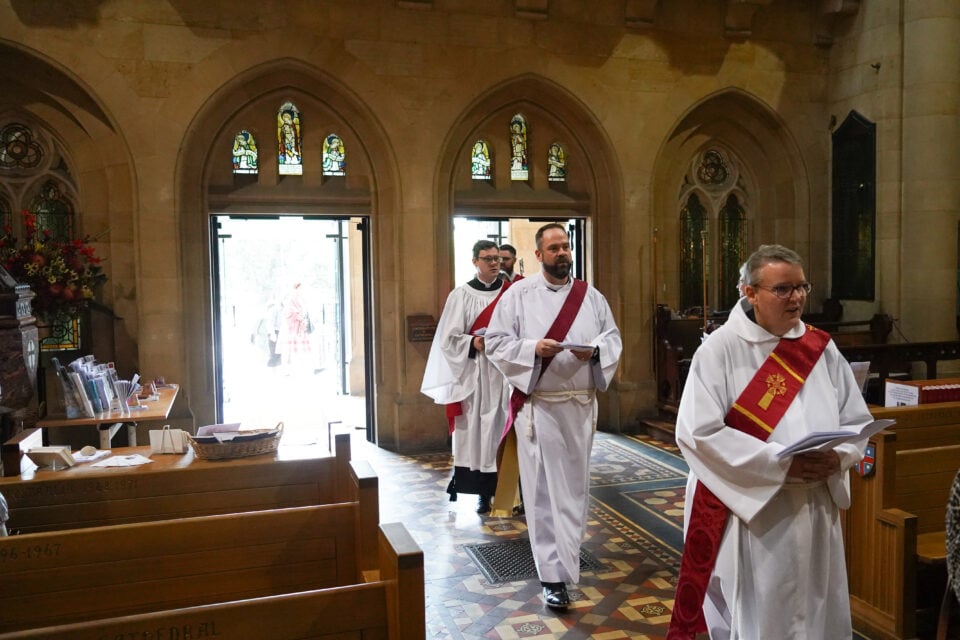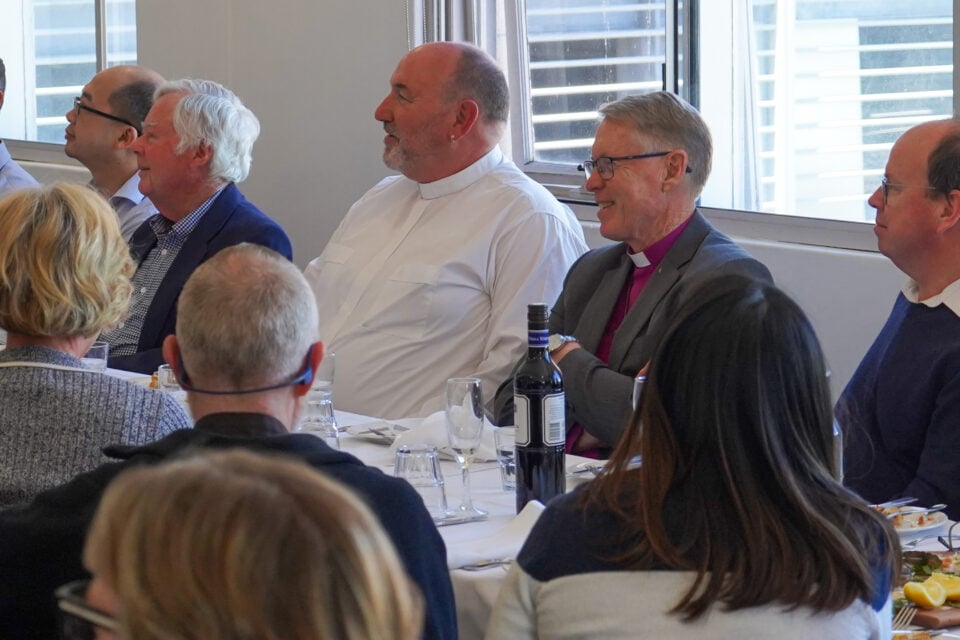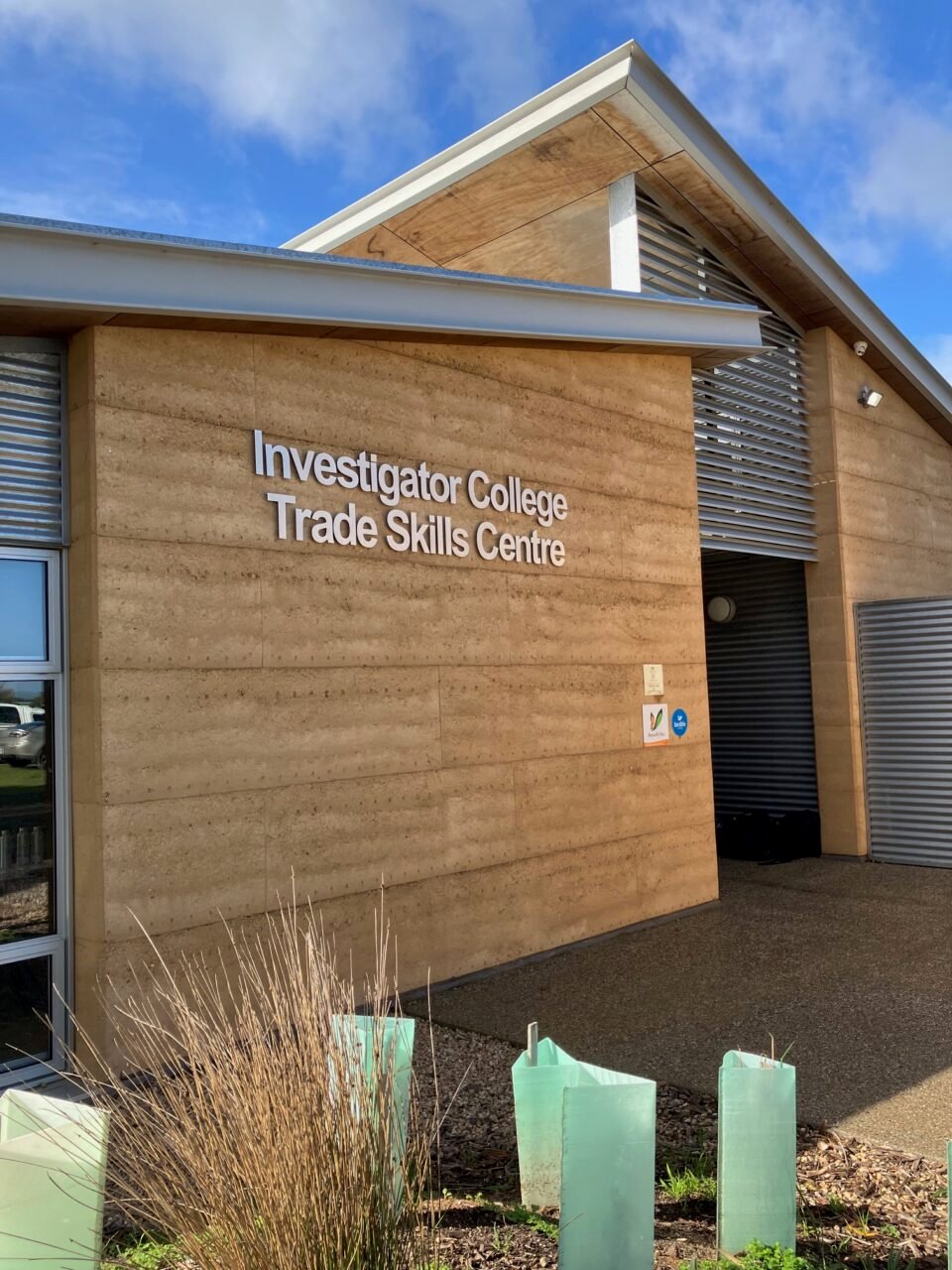As we continue to celebrate the 30th anniversary of the ordination of women as priests in the Anglican Church of Australia, some South Australian priests reflect on their calling and some pictures marking their ordinations.
You can read a history of the struggle of women for the right to be ordained by Sue Henry-Edwards here.
We start with a message from Archbishop Geoff Smith, to be included in the service sheet for the Celebration Eucharist to mark the anniversary, to be held on Wednesday 23 March 2022, 5.30pm @ St Peter’s Cathedral.
Today is a very significant celebration – the 30th anniversary of the ordination of women as priests in Australia.
We give thanks for the ministry of ordained women through those 30 years and remember the determination of those women and men who campaigned so hard to allow women to be ordained to the priesthood.
In some ways, though, it is a bit bizarre that the ordination of women is such a big deal. Clearly in the early church women and men held positions of responsibility in ministry and we know of at least one woman counted among the apostles.
The ordination of women to the priesthood 30 years ago was not actually a novelty but a recovery of ministerial responsibility.
Today’s anniversary is also a call to prayer. Thirty years down the track ordained women are not represented as they should be in senior ordained leadership roles in the church.
There is still much to be done to allow women to participate equally in the leadership life of the Anglican church of Australia.
Please pray that God will both raise up women and men for ordination, and open the eyes of the church so that women and men are able equally to use the gifts God has given them.

The Rev’d Tracey Gracey writes: I consider myself lucky that my pathway to ordination had already been forged by frontier women and men [both lay and ordained] who had a strong belief that God was calling women to serve the church as deacons and priests.
In my late twenties, I returned to the church when I was pregnant with my first child. I had no idea of the controversy around women’s ordination. My first tentative steps were into a besser block building at Bridgewater known as St Michaels and All Angels. There were no women priests at this time, but women’s leadership was accepted, embraced, and appreciated.
The Rev’d John Stephenson, Rector of the Parish of Stirling, was a key person in my calling, for he saw something in me that I didn’t see in myself. He was a firm supporter of the ordination of women and one of the first priests in the Diocese of Adelaide to appoint a woman as an associate priest.
Caroline Pearce became my mentor, advisor, and friend. Caroline had a gentle but firm nature and guided and supported many women who were discerning their call to the priesthood. She encouraged us, but she also taught us.

Caroline was liberal in her thinking. She was creative and loved planning alternative services. She introduced us to progressive theologians and MOW, to EFM [Education for Ministry], which became my pathway to studying a Bachelor of Theology. She was one of the key people who compiled and implemented the Diocese’s inclusive language policy.
Caroline was also jaded, hurt, angry and tired from the battle she and others had to fight. Her fight and the fight of others has been a gift to me, for I have not had to prove myself as a woman; rather, I have had to prove myself as a person worthy of being called by God to serve in God’s Church.
I have been welcomed, supported, and encouraged in my training parishes of Hawthorn and Glenelg. It was a privilege and honour to be the first women parish priest at St Chad’s, Fullarton, where I was embraced and accepted as their priest and had the opportunity to lead, gather and work with this community in the way in which this Diocese had trained me. I have also held many leadership roles in this Diocese.
I have served on the children’s and youth ministry unit, attended ordination advisory panels, offered spiritual direction and supervision, chaired the mission and evangelism unit where we explored ways to implement fresh expressions of church in this Diocese. I am currently the school chaplain for Pulteney Grammar and senior chaplain for Anglican Schools [SA].
There have been times in my ministry where I have been rejected by people and not been able to perform my priestly duties because of my sex, but I remind myself that there have been many more times in my ministry where I have been embraced, valued, and accepted in my calling.
It is with deep gratitude that I minister as a priest in this Diocese because of a number of people, women and men. I have many friends, lay and ordained, who have and continue to inspire me on this path. I am especially grateful to those who have gone before me who carried the burden in helping us all see the place of ordained women in our church.
In many ways, the agenda has changed; there are new issues and ministries to be worked. In a way, the issues are the same, the living out of God’s love and acceptance of all people and the valuing of all in ministry.

Joan Riley recalls her ordination journey: I was first exposed to God and the church as a child in the Roman Catholic tradition. My father was from the east end of London with Irish ancestry and the Catholic Church had supported the family with eleven children during the depression. Accordingly, my sister and brother first, then I a decade later in another country, were presented for infant baptism and then first communion.
By the time I was old enough for first communion the memories of the East End in London had faded for my father and shortly after that event with me all dressed in white, our family departed the church.
It was to an Anglican church that I eventually returned 23 years later, the shock of a death of a friend’s child and her funeral bringing me into a tradition both similar and different.
I stayed in that tradition, drawn by a strong sense of something I could not then discern. I had no idea about the struggle for equality of women in holy orders in the church.
I just knew I was compelled to come into the church, to attend worship, to be near to the celebration of the Eucharist. St Barnabas Church in Croydon was a small and mostly elderly congregation and the opportunities for serving at the altar soon came my way. I wanted to be nowhere else. I skipped law lectures so I could attend church services. Something was keeping me there.
I enrolled in a Bachelor of Theology in 1999, trying to process the calling in an academic environment, turning away from law and towards what would become a more genuine vocation.
There were women who were ordinands that year, Alison Andrew, Sarah, Kate Relf-Pennington. I admired their maturity, their dignity and wisdom. I didn’t know any women priests at that time, but I felt deeply called to be one of them. I moved through the selection conference process in the year 2000, the only candidate for Adelaide.
I was naïve about the Anglican Church, socially unprepared for the massive culture shift that was happening, I was rebellious and rough edged. But God called me nonetheless to that momentous day in the cathedral.
I was ordained deacon in 2004 and priest in 2005. I learned with humility that it was on the shoulders of many hard-working women and men, lay and ordained, that I made it to the bishop’s hands.
Through the subsequent years of parish ministry, I learned the hard lessons that women were not and are still not, even in 2022, welcome as priests and bishops in all parts of the Anglican Church, including our own Diocese of Adelaide, and neighbouring Diocese of the Murray. God, however, continues to call people into ordained ministry in new and challenging times, and God has not excluded women from the call. The journey continues.
Now I am Principal of the theological college in which I first began the road to ordination, and I pray for the wisdom and insight to navigate in the ongoing journey, by God’s grace.

